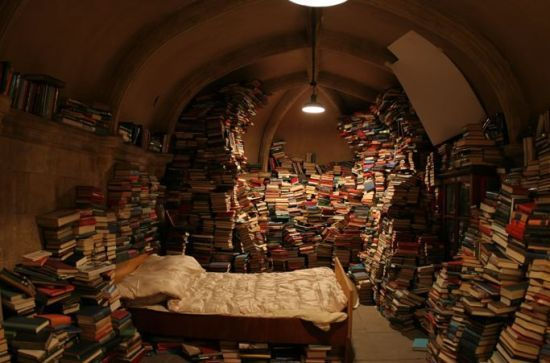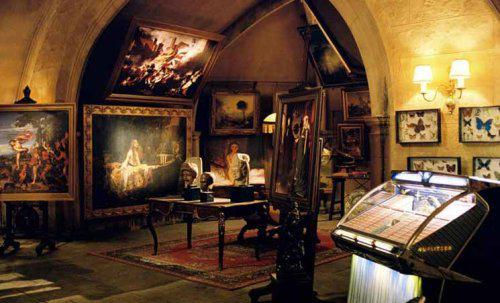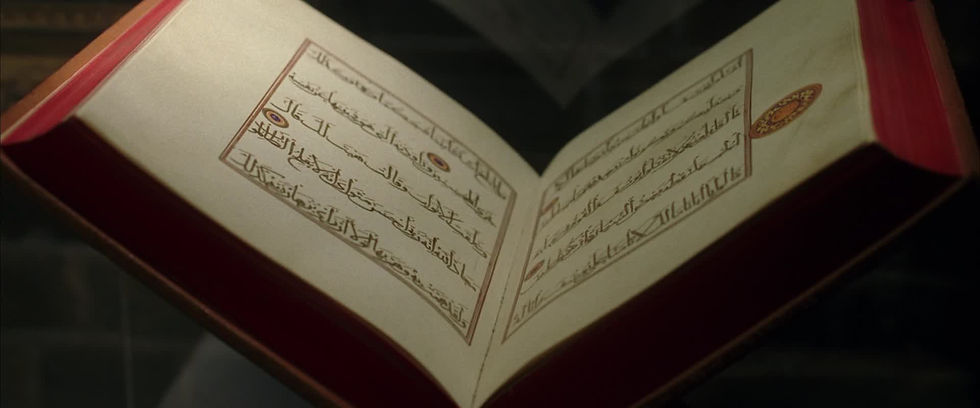Archives in the Movies: V for Vendetta
- Samantha Cross
- Aug 9, 2025
- 7 min read
It isn't often that you watch real world events begin to mimic scenes from a movie, but in the wake of The Late Show with Stephen Colbert's cancellation on the heels of Colbert criticizing the show's parent company, Paramount, for its $16 million dollar settlement with the Cheeto-in-Charge, the map clearly draws itself. Fascists are overly sensitive creatures who lack a sense of humor and use whatever fleeting power they have to crush and/or demoralize anyone who dares point out their flaws or humiliate them in front of a studio audience.
The only reason they get away with these abuses of power is because the institutions in place to supposedly "protect" the people are often the first to comply in advance out of fear of retaliation. Corporations follow suit, willing to sacrifice any integrity or goodwill they might have garnered for the sake of retaining power and money. The end result is a nation under siege from the inside as the people suffer while billionaires profit. What fascists fail to understand is the powder keg of suppressed anger and resentment they've created. And when it all inevitably blows up in their faces, they won't be able to fathom that anyone would think to light a match.
But I'm getting ahead of myself.
Are we at the point where Trump sends his secret police after Colbert in the middle of the night? Honestly, I hope not, but after watching specific scenes for this article, I find it hard not to draw parallels between V for Vendetta's commentary on Bush-era jingoism and the current fascist regime of Trump and his cronies. The movie's not a great adaptation of its source material (see Dominic Noble's Lost in Adaptation for more) but as a standalone piece of media I think the movie is far more relevant now than when it was released.
Do the archives factor into that relevance? Eh, more or less.
V for Vendetta is a 2005 film adaptation by Lana and Lily Wachowski and directed by James McTeigue of the 1988-89 graphic novel of the same name by Alan Moore and David Lloyd. The story follows Evey (Natalie Portman), a young woman living in an alternate Britain that devolved into an ultranationalist state under the Norsefire political party run by High Chancellor Adam Sutler (John Hurt). While caught at night after curfew, Evey is nearly assaulted by the secret police before being rescued by V (Hugo Weaving), a charismatic revolutionary wearing a Guy Fawkes mask, whose end game is to blow up Parliament on next year's Bonfire Night. Due to her brief association with V, Evey becomes a target of the government and is ultimately forced into V's world.
While the book is a scathing commentary on England's politics under Margaret Thatcher, it's also very pointedly focused on examining anarchy in the face of fascism. The Guy Fawkes mask V wears in the book is Moore and Lloyd deliberately evoking Britain's "tradition of making heroes out of criminals or people who in other centuries might've been regarded as terrorists." V is both hero and villain, depending on who you ask, and his efforts to destroy the fascist regime can be interpreted as both provocation and inspiration. The ambiguity is the point because Alan Moore doesn't like spoon-feeding readers easy answers when confronted with complex ideas.
The film, on the other hand, doesn't have the time or space to adapt the complexities of the book. Changes have to be made to streamline the story, which means sacrificing nuance for bluntness. To the Wachowskis' credit, they still managed to make an entertaining movie that tries, in earnest, to plant the seeds of revolution amongst the masses. V's philosophy and ultimate goal are fundamentally different between the two mediums, but the end result is still a populace with the tools and the means to save themselves.

"But, Sam, where are the archives in V for Vendetta?" I hear you asking.
Okay, the movie doesn't feature a traditional archives save for the scene where Chief Inspector Finch (Stephen Rea) looks at an online newspaper archive to uncover the government conspiracy that led to the rise of Norsefire's political power. However, V for Vendetta does provide what could be considered the beginnings of an archives after V kidnaps Evey in order to "save" her. So, bear with me on this one.
After being knocked out for helping V during his assault on the TV station where Evey works, V whisks her away to his hideout in the abandoned Victoria station. Upon waking up, Evey is surrounded by wall-to-wall books, and when she ventures into the heart of the station, she sees classical works of art, sculptures, specimen displays, and all manner of artifacts covering every inch of the space. V calls it his Shadow Gallery, a sanctuary of items rescued from the sanitization and censorship of the government, including the books in Evey's room. Eagle-eyed audience members have noted since the film came out that many of the pieces we see in the Shadow Gallery are works of transformative art: the butterfly specimens, the painting Puberty by Edvard Munch, and the scene where V and Evey watch The Count of Monte Cristo. Not only is it very much on theme for the film, but If you know anything about the Wachowskis, then the inclusion of these pieces and their symbolism isn't surprising at all.

The point of V's Shadow Gallery is to further the audience's understanding of the iron-clad control the government has over public access to art, literature, music, etc. By marking these works as "Objectionable Materials," the government gives itself permission to eliminate them from the cultural zeitgeist because the last thing any fascist regime wants is people being educated or questioning the world around them. The less you know, the less you remember, the easier you are to control, and art has always been a powerful tool of opposition. Erasure is key to the fascist playbook. The faster you can remove something you deem "objectionable," the less time it takes to gaslight people into thinking it was never there. The parameters for what is and isn't "objectionable" are vague, but when the public starts to associate the exclusion of materials, or people, with the government's arbitrary label, then the gradual acceptance of it turns into the normalization of Othering and Disappearing for not meeting the requirements. For every item we see in V's Shadow Gallery, we know where it isn't and we know that V, and now Evey, are the only people, probably in decades, who've seen those paintings, heard that music, or watched that film. They're the only two people, aside from government, who know of their existence.
In any other film, V's Shadow Gallery would just be hoarding, but within the context of the film it's a necessity to preserve the history and culture of the Britain before Norsefire took control. By the film's end, I could absolutely see a new archives or museum created from the pieces V saved. In comparison, Evey is privy to another secret space of forbidden items when she escapes V and finds refuge with her former boss Gordon Dietrich (Stephen Fry), the host of a government-approved variety show.
Hidden behind his wine cellar, Gordon shows Evey his private collection of banned artwork and photography that he was able to acquire due to his celebrity status and financial privileges. Amongst the pieces are homoerotic photographs, a Warhol-esque painting of High Chancellor Sutler dressed in drag, and a 14th century copy of the Quran. The Quran garners the most attention because, again, this is Bush-era politics and anyone who lived through September 11, 2001 and its aftermath of anti-Islamic, Big Brother paranoia-infused rhetoric within the United States knows exactly why this conversation exists. Gordon has the Quran because he views it as a work of art and he doesn't have to be a Muslim to understand its value.

The scene is a bit of a double-edged sword. On the one hand, it provides similar information to what we learned from V's Shadow Gallery. The fact that Gordon has these items kept in a hidden room means they're not available to the masses and further solidifies the homophobic and Christian fundamentalist values of the government. It's also a means for the Wachowskis to tell the audience that the Quran isn't a terrorist manifesto and deserves to be treated with the same reverence as any work of art. On the other hand, a rich white man owning a centuries old text of a religion he doesn't practice just doesn't look good. It's a level of privilege the Wachowskis and McTeigue aren't interested in interrogating, but it's there, all the same. Also, I'm not a preservationist/conservationist, but I'm pretty sure Gordon shouldn't keep a 14th century text under a light shining directly on to the ink and paper.
The collecting practices of V and Gordon are worth noting as well because they are integral to each character's place in the story. V is the revolutionary, a man trying to inspire the masses to take back their country. His home is filled with whatever he can liberate from the government because it ultimately belongs to the people. There's no rhyme or reason to what he has except for the fact that he doesn't want it to be destroyed by Norsefire. Gordon, however, works within the system as an entertainer. He's a closeted gay man conforming out of self-preservation, so his private collection reflects his personal desires. It's a heavily curated space, hidden away for him to enjoy because of his social and financial status. The two collections couldn't be more philosophically opposed and yet they share a common factor of preservation via acquisition. Because V and Gordon have these items, there's a chance they won't be forgotten.
It's not entirely archival, but V for Vendetta shows us the means by which fascist regimes revise the cultural landscape. The materials kept in galleries, archives, libraries, and museums are touchstones of society meant to preserve the lives, thoughts, and actions of ALL people. Erasing or destroying those materials is another form of violence, a tool of oppression that paves the way for even greater harm. When we look at the items V and Gordon have, we can't help but wonder what wasn't saved. What was lost under the government that we can never get back and is there anyone left who remembers?



Comments